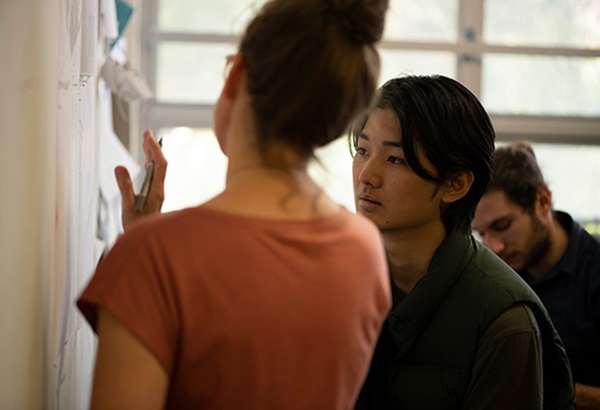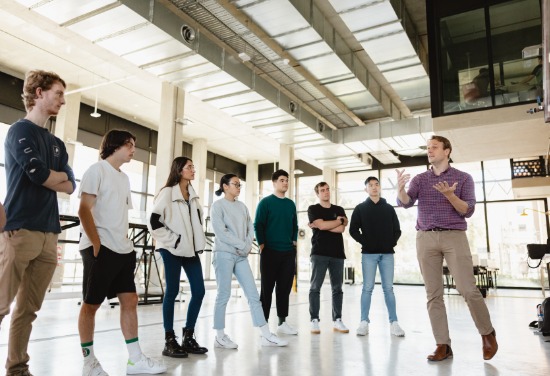We spoke with Human Resource Management lecturer and assistant professor Rajiv Amarnani and lead tutor/PhD candidate Emika Howard for their advice on acing each step of the process.
When you’re job-hunting
Network effectively and early
It’s true that so much of job hunting comes down to who you know, like having an insider vouch for you, getting inside information on what the company is looking for, or even hearing about a job opening early.
To give yourself the best chance of success, Rajiv recommends making connections as early as possible, with people both ‘above’ and ‘below’ you in your area of interest.
“Lay the groundwork months or years in advance by networking,” he says. “Make friends vertically and horizontally in your field, and sustain these friendships by checking in regularly and just being a friend. Networking ultimately comes down to being a good human being to others and taking care of your relationships.”
When you’re applying
Present yourself immaculately
It sounds obvious, but it’s one tip that so many people get wrong. Always get a trusted friend or family member to go over your résumé and see if any edits or improvements can be made.
“Your résumé should have no typos and should have a professional filename. And make sure it’s your actual résumé. Most HR officers can tell you amusing stories of opening someone’s résumé PDF and instead finding recipes, legal documents, instructions for cleaning a fish tank, etc.,” says Rajiv.
Emika adds, “Ensure it’s not too long, as most employers will only want to read the important parts, i.e. your work experience.”
No more than two or three pages should be sufficient, or check the advertisement as many employers will specify the ideal length of a cover letter and/or CV.
Pre-interview
Practise answers
“Anticipate the usual questions for the job and prepare concrete answers based on problems you actually solved in life or your work experience,” Rajiv says.
Use the STARR system to communicate your answers:
-
Situation – What was the problem that emerged? (Give the interviewer/s some context)
-
Task – What did you need to do to solve the problem? (Link this back to a critical skill for that job)
-
Action – What did you do? (Show that you used this job skill effectively)
-
Result – What happened after your action? (Point to the ultimate conclusion and ideally point to some evidence of this that can be verified by references or cross-validated on your resume)
-
Reflection – In retrospect, what did you do well and what you do differently? (Demonstrate that you learn from your experiences)
At the interview
Exhibit your skills
Two of the most important skills employers look for are communication skills and data skills, according to Rajiv.
“Being able to explain and persuade in written, oral, and graphic forms is an evergreen skill set that will serve most organisations well. (And) the ability to make sense of data is a powerful and versatile skill set,” he says.
“These two skill sets work best in combination. It’s exceedingly rare to find someone who can not only interpret and analyse data but use it to successfully persuade.”
The best way to demonstrate these skills is to show, not tell. This means interpreting and analysing data from your own work experience and study (i.e. numerical outcomes, per cent improvement, etc) and assembling these data points as evidence, or proof, that you possess these critical job skills.
Emika adds that many employers want to see soft skills such as teamwork, interpersonal skills and cultural awareness. “Many graduates finish their degrees with a lot of knowledge but some lack these soft skills, so in any selection process such as an interview, assessment centre etc., do your best to demonstrate these skills,” she says.
Best of luck!









